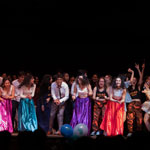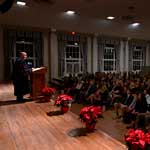
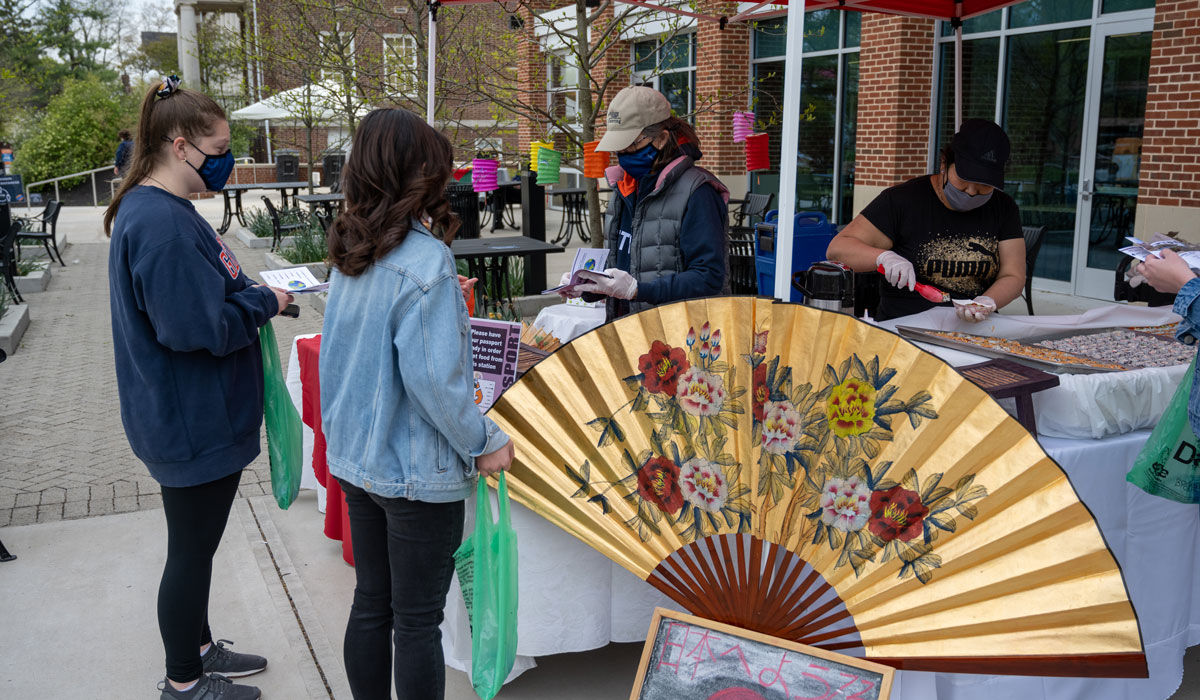
It was a cool Friday evening, and the smell of food and chatter filled the air.
Dining Services closed early to prepare for the annual International Food Festival on campus. Food booths were seen spread out across campus, from the front of Servo to the College Union Building, and on Stine Lake, in order to maintain physical distance. Each food stand had distinct features, design, and, most importantly, food, which represented the country’s culture and flavors.
This year’s theme was “A Progressive Dinner Around the World,” and it featured food from many different countries, including Italy, Japan, India, Myanmar, Mexico, and Jamaica. Attendees were given an “International Food Fest Passport” that enabled them to go and get food at different stations.
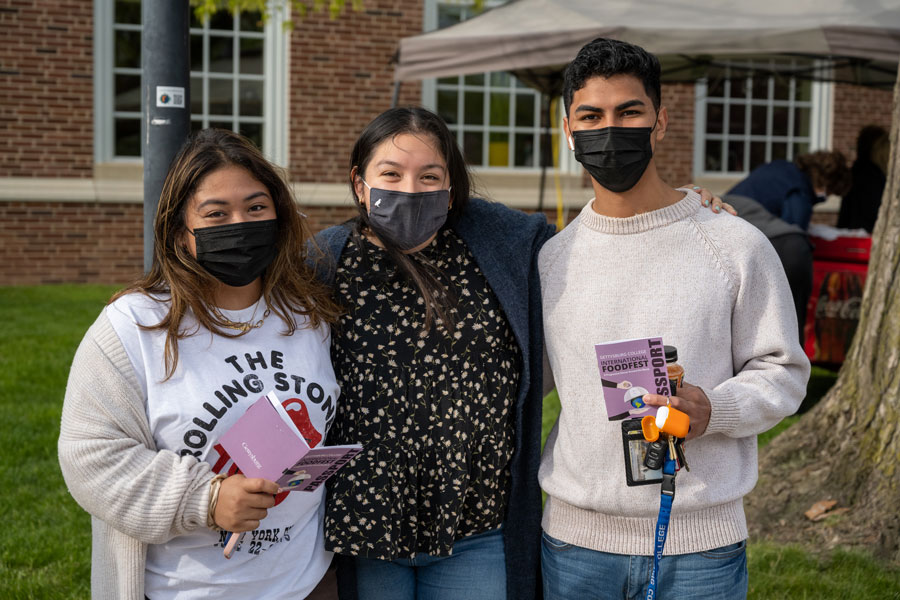
Stomachs were hungry and students were excited. They took their place in long lines, waiting to experience a diverse array of foods.
“As always, International Food Fest is an opportunity for the campus to explore and learn more about cultures from around the world. In a year that has been challenging to do in-person intercultural programming, I am very excited for Food Fest this year,” said Brad Lancaster, director of International Student Services in advance of the event.
Many students were excited to try different foods and enjoyed exploring different cultures through each unique flavor. Chakriya Ou ’23, an economics major and data science minor, said that, based on the type of food and the ingredients and flavor she experienced from it, she could actually “imagine those countries’ society and diet.”
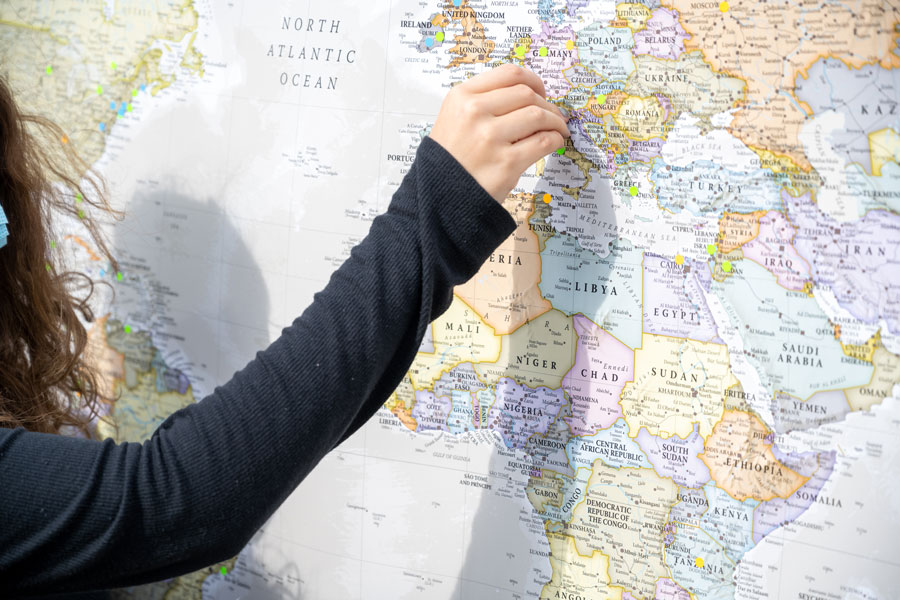
For some others, the events wasn’t just about food, but also the opportunity to be together as a community and enjoy some time with friends, as April 23 was deemed a class-free “Wellness Day.”
“My favorite part about [Food Fest] is the social aspect of it, being able to hang out with people and try new food. It’s also interesting to hear how they think about each food item, too,” said physics major Jacqueline Richardson ’23.
Besides the excitement of different flavors from around the world, students were also able to enjoy live music, activities such as henna tattoos, a color run, art and crafts, and other games across campus all evening.
Reflecting on the process of bringing this event to life this year, Jonathan Allen, director of Student Activities and Greek Life, believes that Food Fest is an evidence that, with hard work and creative thinking, the Gettysburg community can continue to overcome challenges and find ways to be together.
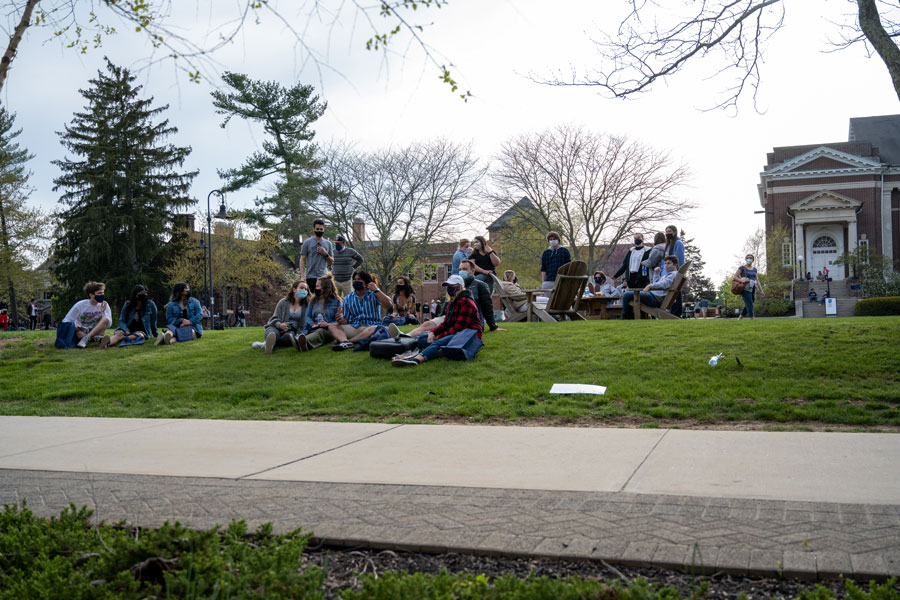
“COVID-19 has required us to rethink how we do everything, but it has not shifted our focus on the importance of building community, and I think Food Fest is a testament to our resolve to making that happen,” he said.
Emphasizing the value of being together and fostering community, the Office of Residential and First-Year Programs built a virtual version of the International Food Fest event on a platform called Topia, allowing students to engage in the event remotely.
“This platform allows remote students to [virtually] walk from one booth to another, interact with students nearby who also use the platform, and get a chance to learn about various countries represented in the event,” said Allen. Moreover, Dining Services will also give remote students the recipes of each food item to recreate the dishes at home.
International Food Festival is just one of many Gettysburg College traditions that promotes diversity and brings people together culturally, but it’s also one that students deeply cherish.
“Gettysburg really prides itself with its traditions, and I am glad we are able to keep this up, especially in this COVID time,” said Ian Murren ’21, a philosophy and political science double major, and peace and justice studies minor. “It’s very important to explore different cultures through food, because everything has its own identity. Food brings out each country’s unique culture.”
By Sokuntheary Heang ’24
Photos by Peter Francis ’21
Posted: 05/06/21

